The Fury of Youth, the Danger of Violence, and How to Help the Student Protestors
Many rightfully criticize the violent nature of some student movements. Does this criticism help anything? Do we truly understand?
For over four years, I spent nearly half my waking hours in deep, intimate relationship with teenagers. I worked as a wilderness therapy guide. The programs I worked for were often utilized as a last-ditch effort by parents to help their children heal. They would send them to our program where we would accompany their child for 7 or more weeks in the wilderness. We would teach them how to make primitive fire, cook over an open flame, and connect with the wisdom of nature. Thus, a teenage boy may be sent away from home, stripped of all hid distractions and pleasures, and dropped in the middle of the Arizona desert with 4-7 other boys—all dealing with their own problems—and two or three hippie-folk to guide them. As you can imagine, this stirred up a lot.
Thus, for four years I was privileged to witness the intimate intensity of the troubled teenage soul. I learned a lot from these teenagers. I can't tell you how many hours I spent in deep, intimate conversation with these young people—witnessing both their brilliance as well as the insanity they are pressured to adapt to as “normal.”
I'm thirty-two years old, myself. I spent my youth and teenage years in the 90's and 2000's. Life was idyllic at that time—so far as I knew. My community was relatively stable. I was fourteen in 2006 when Al Gore's “An Inconvenient Truth” came out—launching the awareness of climate change into the mainstream as well as my personal psyche. It was only a couple years later that the economic recession hit. When I was in High School, Facebook was indeed popular, but social media was certainly not where the bulk of my social life took place. While the world was rapidly changing and I could tell there were significant challenges taking place—I felt relatively insulated from the social, political, and economic crises of the world. I was a kid. My concerns were about my friends, my family, my grades, and video games. I trusted the adults would take care of the rest.
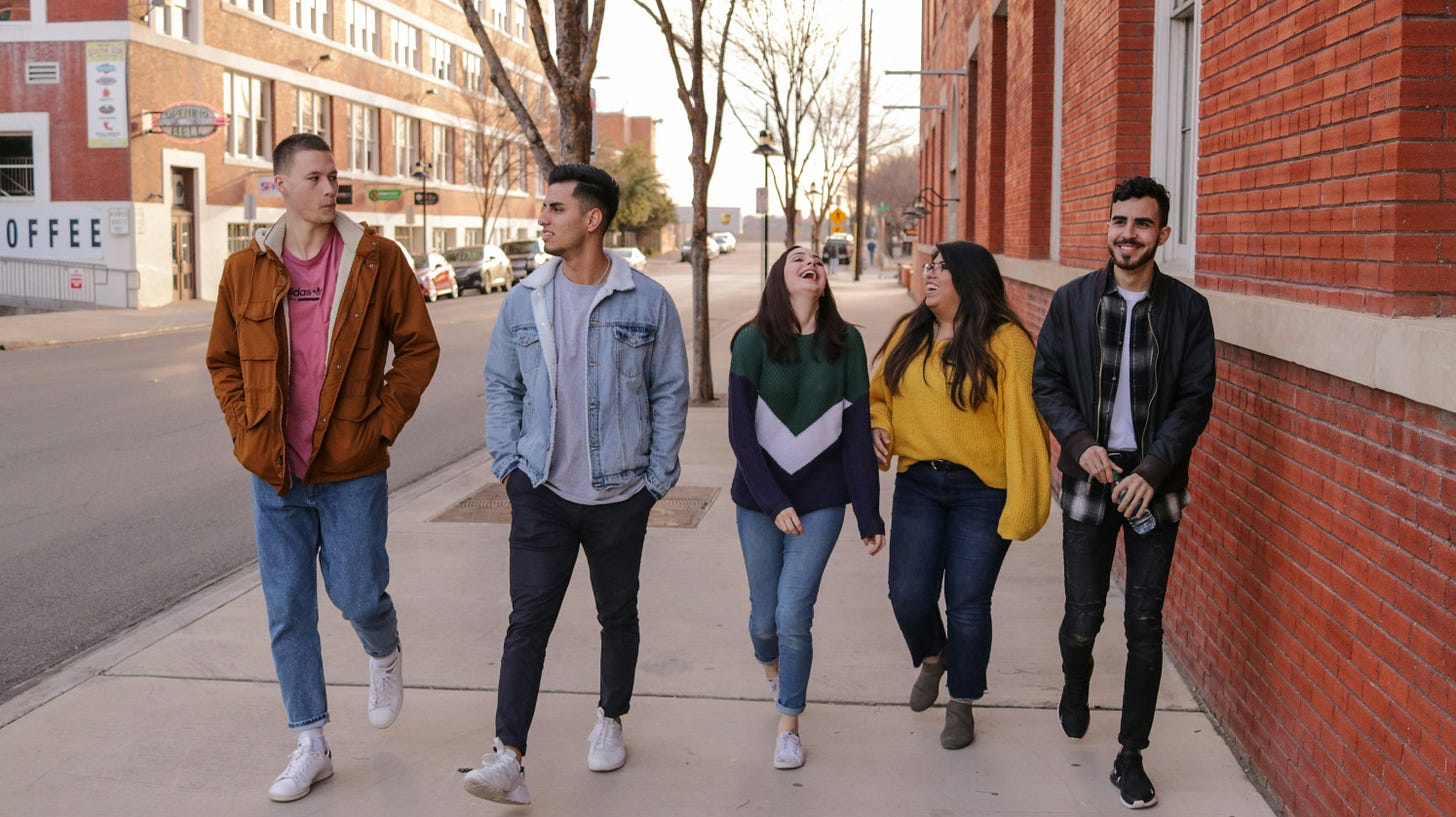
While indeed there have always been youths growing up with radically different perspectives and experiences from my own, I still think that most people my age or older had a similar attitude. Whether one was a conformist like myself or a rebel like so many others—there was once an illusion that the world was turning out okay and life, in general, was improving.
This is nothing at all like the world today's youth is growing up in.
Shockwaves were sent through the world when Greta Thunberg spoke out in front of the UN in 2018, condemning the irresponsibility of adults and powerful people everywhere for stealing the future away from her generation. Her perspective was shocking and resonant because it was true. The compounding economic, ecological, and social crises are worsening rapidly with no sign of letting up. It will be the generation of Greta and those who come after her that will inherit the vast issues that their parents and grandparents failed to prevent.
When I was a teenager, the general formula made sense: get an education, go to college, get a job. This was a simple and reliable formula for a decent life. Very few teenagers believe that now.
Today's teenagers are growing up in an age of profound unrest. They recognize—acutely—that the current world order is devastating the planet. Young people understand that the climate is changing and careening towards massive ecological disasters that will play out and worsen over their lifetimes. They understand that the adults of the world have failed to respond accordingly to safeguard the abundant futures that they deserve. Yet, they are simultaneously being educated in institutions that have woefully failed to adapt to the world these children live in. They are told to care deeply about learning the complex integral theories of calculus while much of Australia and California burns.
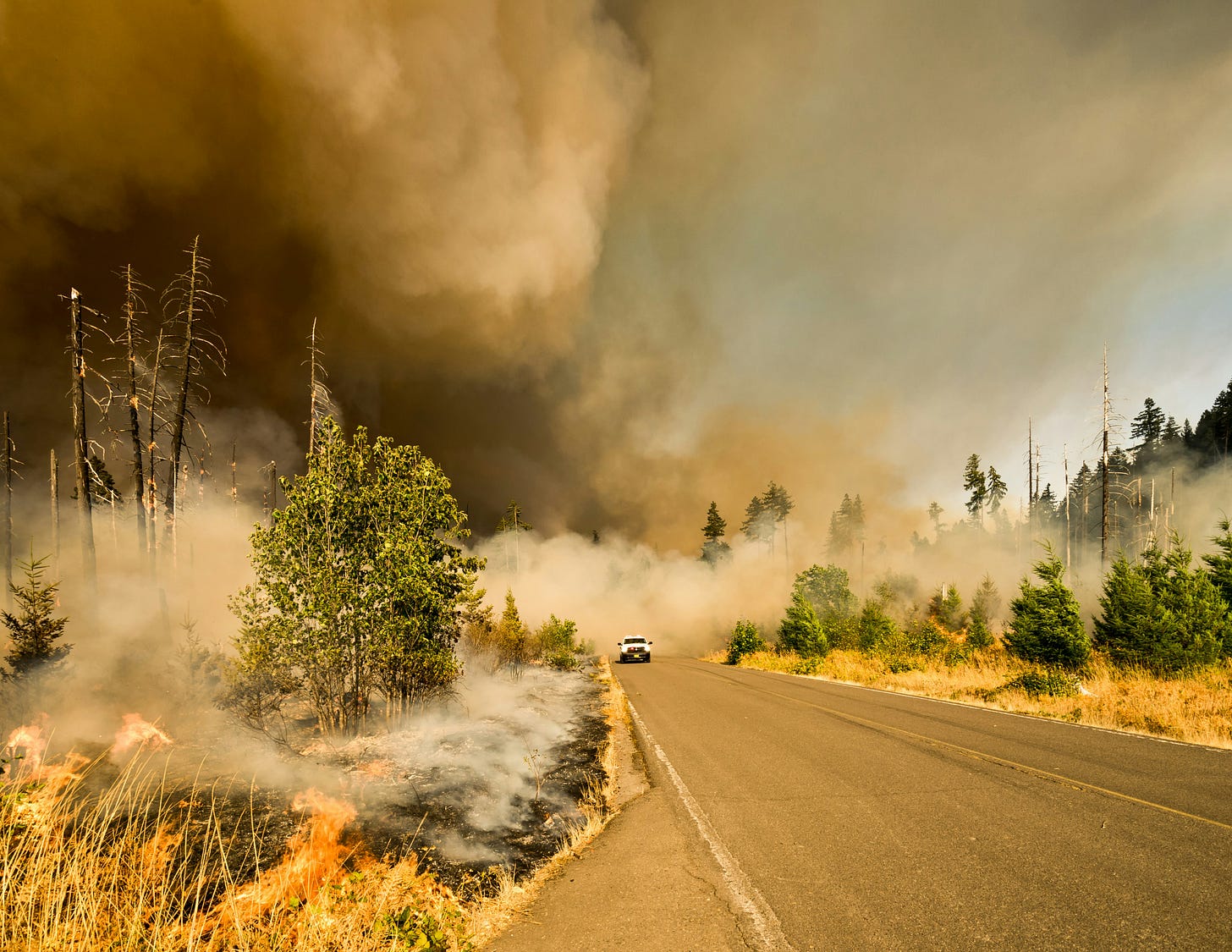
This isn't just theoretical, either. For two years, these young people had to forgo any normal sense of education during Covid. They were told to stay indoors, mask up while outside, and expected to continue applying themselves to studies that appeared increasingly irrelevant in the world they were growing into. Meanwhile, the adults they were supposed to trust panicked.
The truth is, we have failed to safeguard the freedom and innocence of childhood. We have failed to keep them safe. We have failed to shield them from the problems of the world. Meanwhile, we ask them to conform to the same systems that have already demonstrably failed them in numerous ways.
The teenagers I worked with responded to this in different ways. Some of them willfully ignore the problems of the world that consistently impinged upon their lives. They worked hard to conform to increasingly distorted shapes in order to maintain the image of normalcy that they desperately wanted to believe in.
Some of them internalized the immense pressure and horror upon themselves. They relentlessly compared themselves to the idealized images of social media and inflicted violence upon themselves via eating disorders, self-harm, or even attempted suicide.
Others doubled-down on their studies and career development, hoping that even if the world was collapsing—if they could position themselves highly enough, that they would be okay.
Many of these youths—in a timeless tradition—took the understandable route of rebellion. They felt, like Greta Thunberg, indignant about the absurdities they were forced to endure. They turned to crime or drugs or violence—hoping to extricate themselves from a dying system.
Of course, each of these responses is appropriate in its own way. Yet, the teenagers had only reached me because something wasn't working. While their parents sent them to us in order to help their children feel better—the impact they had on me was to sensitize me to their very legitimate pain.
Why do I bring this up?
Two nights ago I finally read some pamphlets printed and distributed from college campus Palestine solidarity encampments. I found myself feeling quite disturbed reading them. Much like the teenagers I worked with (and perhaps even written by some of them), I grokked that these pamphlets were written from a place of legitimate grievance. The pamphlets contain rather concise descriptions of the power structures of US and world political systems as it relates to Palestine. They correctly identified the hypocrisy of US political ideology that affirms the rights and dignity of all people while waging war throughout the world and shielding Israel from international law. They astutely named the difficult position of University officials, exploring why it is difficult for them to compromise with protestors. I could go on, though suffice to say I was impressed by the political acumen of these pamphlets. It is clear these students had done their homework.
As well, I honor the bravery and commitment of these students. It is clear that they are committed to the cause of remaking the world—in spite of any personal losses they may incur. They understand the position they're in, the risks that they're taking, and they make it clear that they are prepared for far greater sacrifices. I have no doubt that they will continue to make them.
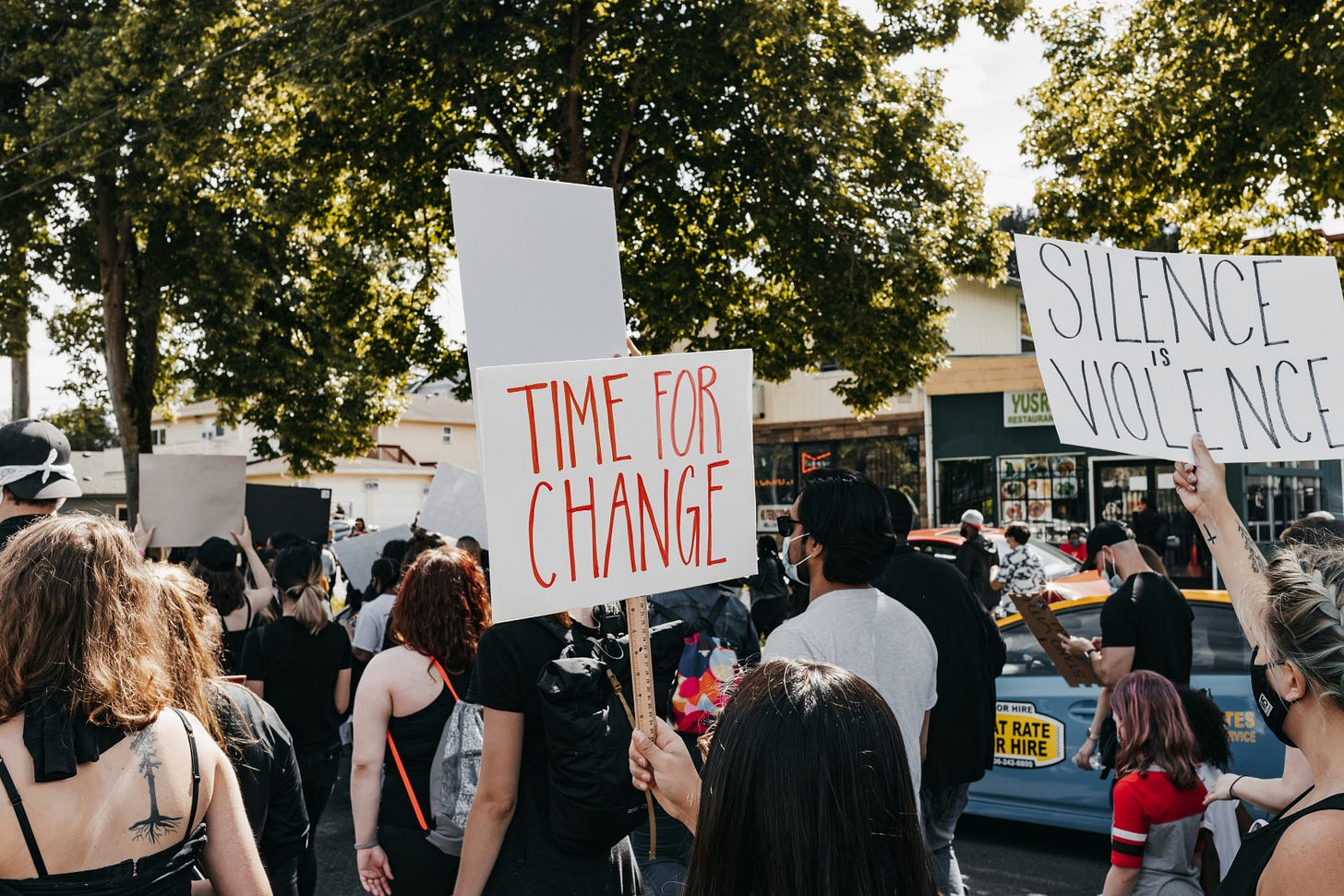
Yet, as was often the case with the teenagers I worked with, there is a streak of violence through the words. While not explicitly promoted in the pamphlets, coded language like “diversity of tactics” as well as an injunction to not attempt to prevent anyone's choice of tactics, implicitly offer permission for violence. I, myself, am a staunch proponent of nonviolent civil resistance. Not only do I think it's more efficient and effective—I also think that it will ultimately lead to the world that is best for everyone. Violent revolution, by contrast, tends to recreate the very same kinds of inequalities that the revolution seeks to overcome. The cycle of violence is just that—a cycle. Power won through force is destined to sow resentment in those who lose the battle. As well, those who win power through violence are forced to maintain their power through ever increasing use of it.
Yet, I haven't written this article to address those students—to encourage them to adopt my principled stance on nonviolence. They have heard nonviolent rhetoric their entire life. They live embedded in a culture that tells them to conform and play nice and change the system by small, incremental gains. Meanwhile, their TikTok feeds show them the actual violence committed by the allies of the same political system they are told to cooperate with. More than that, they rightly perceive the attempted congressional TikTok ban as a political attempt to hide this violence from them. They are rightfully angry.
A word that fills these pamphlets and the language of radical activists everywhere is “disruption.” If they behave violently, that violence is almost always aimed towards the goal of disruption, or at least couched in the language of that goal. They aptly recognize that the political status quo in the US is deeply invested in the Israeli military apparatus. Thus, they also accurately recognize that that system is not going to change unless the status quo is upended and “normalcy” cannot be maintained.
In fact, this is the same political stance taken by Martin Luther King Jr and other leaders of the civil rights movement. If the state is acting unjustly, the people must negotiate with state actors as equals. The people must first, then, challenge the status quo to such an extent that the state will make concessions to restore it.
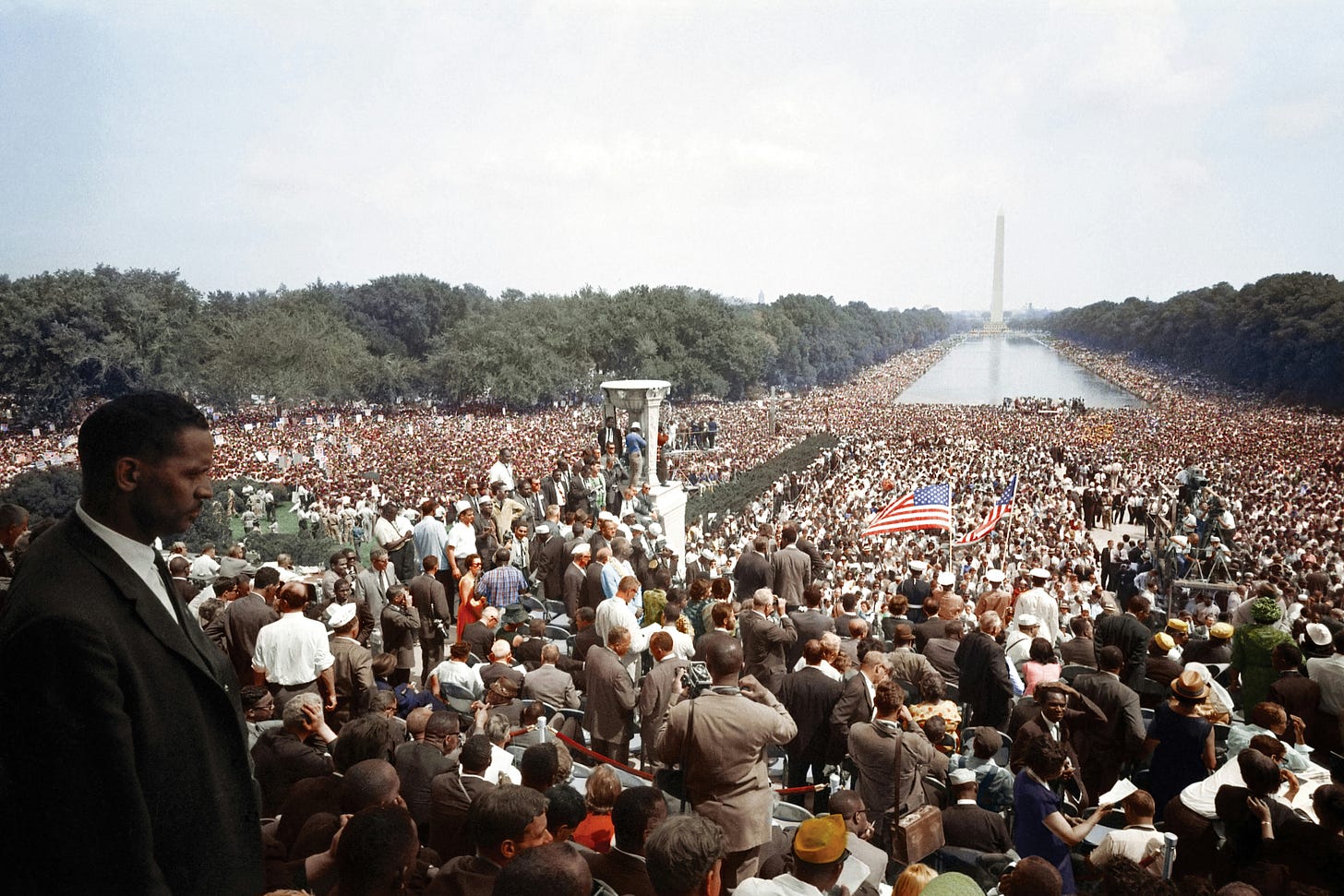
I say this. I understand this. Yet, I must admit my own cowardice in the face of the state. Rarely have I ever put my own safety and comfort on the line to disrupt the conventional operations of power in the US. To any radical activist, then, my injunctions to “be nonviolent” will be heard as weak kneed equivocations to submit to the rule of power. Perhaps they would be right.
Yet, when I read these pamphlets I don't see these tactics resulting in the just peaceful world these students are fighting for. Rather, I see it inspiring a massive increase of state repression, a breakdown of social order, and the eruption of civil violence throughout the US. This could easily lead to a civil war.
Truthfully, I've seen our political system in the US heading towards this for many years. Yet, I haven't taken the courageous steps the students have in order to change the direction of things. In this way, I have been complicit. I have participated in the systems that harm these students as well as the Palestinian people directly.
True proponents of nonviolence—like that promoted by Martin Luther King Jr—suggest that in order for our nonviolence to be effective, we must be as militant in our practice of it as are the proponents of violence and war. Likewise, Gandhi called the satyagrahas to endure suffering willingly in service to their political cause.
The students are right. Our system must change. And it will only be from the courage and sacrifice of many that we will be able to change it.
Yet, it ought not be only the children to are forced to suffer from the failings of adults. If those of us who want a truly peaceful revolution are to be taken seriously by these brave youths, we must be willing to suffer at least as much for that effort as they are already suffering for theirs.
It is time for us to become militant, nonviolent creators of the new world. Massive challenge to the political status quo has almost always been inspired by the passionate intensity of youth. Yet that passion must be honed and directed by wisdom, understanding, and perspective. Yet this will not come by criticizing their efforts from the comfort of the sidelines—but by getting directly involved.
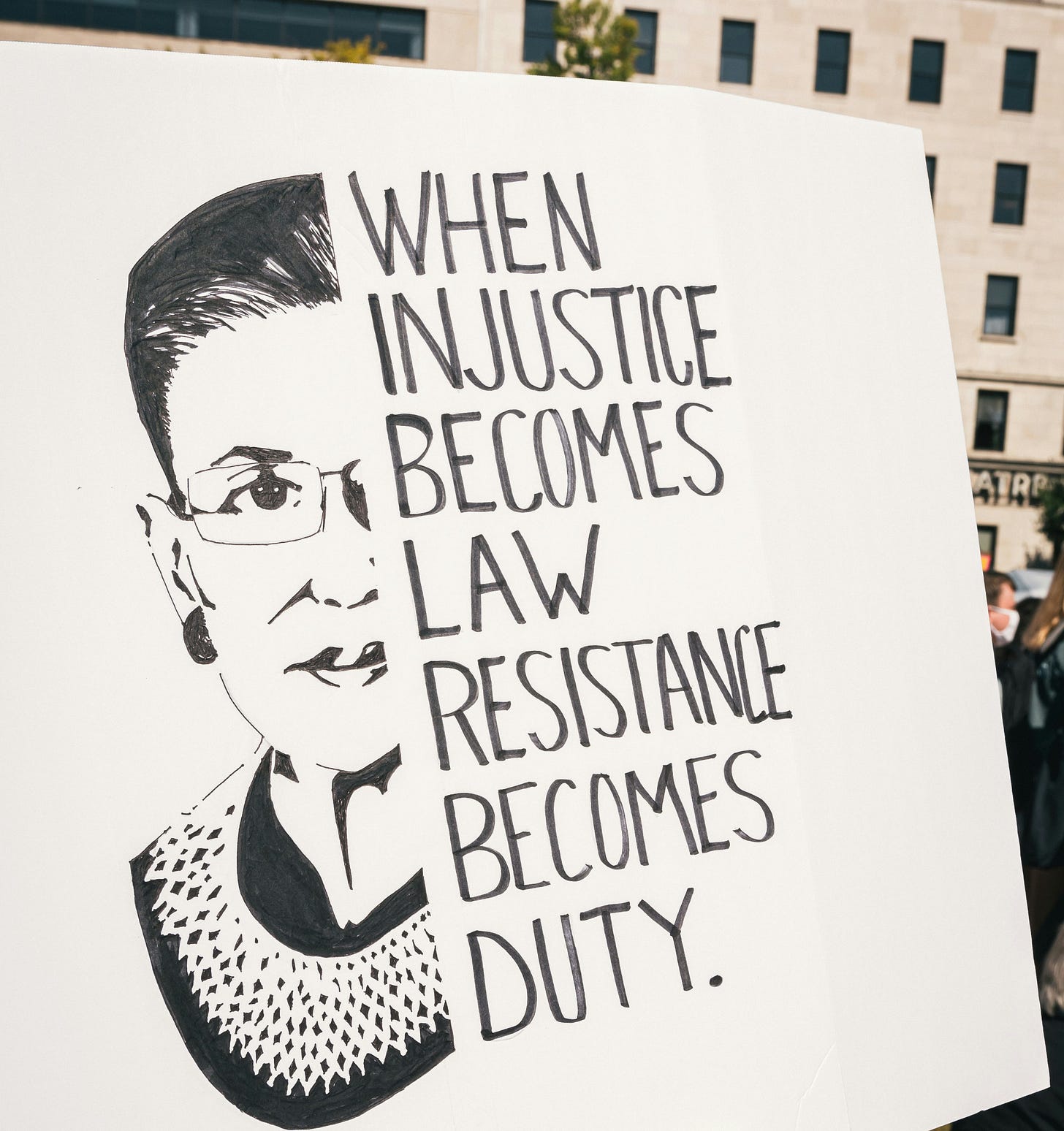
Thus, before we criticize, let us seek to understand. Let these students and youths know we do understand where they’re coming from and that we’re willing to make sacrifices to help them create a better world.
Yet we mustn’t just talk about it, but back it up with action.
I can’t tell you what that looks like for you with your abilities and context. Yet if you’re earnest in your concern and courageous in your heart, I trust you’ll know just what to do. You do your part and I’ll do mine.
The movement, and the youth, will thank us for it.




The original quote by Thomas Jefferson is “When tyranny becomes law, rebellion becomes duty.”
Slight but significant changes, reframed with a sketch of Supreme Court Justice Ruth Bader Ginsburg?
???
When tyranny becomes law, rebellion becomes duty. - Thomas Jefferson